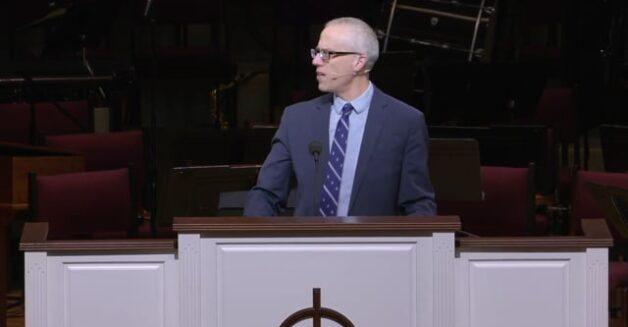The short answer is no. Though it sounds very Protestant, it is not correct to say “sanctification is by faith alone.”
That requires some explanation.
In saying sanctification is not by faith alone, I’m not saying the work we do is somehow owing to us and not to God. He works in and we work out. But if we say sanctification is by faith alone, aren’t we severely reducing what we mean by saying justification is by faith alone? It was the mistake of Catholics to inadequately distinguish between justification and sanctification. If in trying to honor justification by faith alone we provide the same formula for sanctification, we are destroying the former as much as the latter.
Faith that Worketh
It’s true that we are sanctified by faith–both by believing in Christ’s complete work on our behalf and by trusting in future grace. Faith continues to play a crucial role in sanctification, but not in the exact way it does for justification.
Listen to J.C. Ryle:
Moreover, the Scriptures nowhere teach us that faith sanctifies us in the same sense and in the same manner that faith justifies us! Justifying faith is a grace that “worketh not,” but simply trusts, rests, and leans on Christ (Rom. 4:5). Sanctifying faith is a grace of which the very life is action: it “worketh by love,” and, like a mainspring, moves the whole inward man (Gal. 5:6). (Holiness, xviii).
Sanctification is a gift just as justification is (a double grace, or duplex gratia, as Calvin called it). Both are the gift of God, ours by virtue of union with Christ. Both are found in Christ alone. Both are necessary for salvation–justification being the root and sanctification being the fruit. As is often said: faith alone justifies, but the faith that justifies is never alone.
So we must never separate justification and sanctification. The former can’t help but produce the latter, and the latter must flow from the former. And yet we should not be afraid to talk about justification in a different way than we talk about sanctification. One calls us to rest; the other to fight. One reckons us righteous; the other makes us righteous. One allows for no increase or degrees; the other expects progress and growth. One is a declaration of God about us, the other a work of God in us.
Consider this paragraph from the Westminster Confession of Faith:
Their ability to do good works is not at all of themselves, but wholly from the Spirit of Christ. And that they may be enabled thereunto, beside the graces they have already received, there is required an actual influence of the same Holy Spirit, to work in them to will and to do, of His good pleasure: yet are they not hereupon to grow negligent, as if they were not bound to perform any duty unless upon a special motion of the Spirit; but they ought to be diligent in stirring up the grace of God that is in them. (16.3)
This paragraph summarizes what I’ve been trying to say in this series of posts and what I find some Christians reticent to say. In sanctification, we don’t just fight to believe (though everything flows from faith). We actually will and do. We don’t just dive deeper into our justification, we perform a duty. We must be diligent to stir up the grace of God that is in us. This sort of language—willing, doing, perform, diligence—has no place in talking about justification. But if we do not use this language in talking about sanctification we have missed the language of the Bible.
If the words mean all that we want them to mean with regard to justification, then “faith alone” is not the right phrase for sanctification.
One Final Thought
The Bible is a big book with a lot in it. As such, the Christian has a lot of tools in his sanctification tool belt. Are we sanctified by remembering our justification? Yes. But God also motivates us by a sense of duty, by gratitude, by threats, by promises, and by the fear of the Lord. We are told to follow the Lord’s example and to live out our union with Christ. We’re also exhorted to make our calling and election sure. So while we never move past justification. We can do more than revisit our justification to grow in our sanctification.



